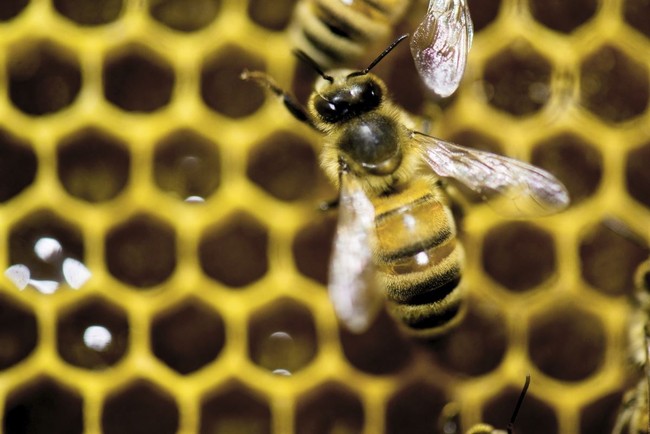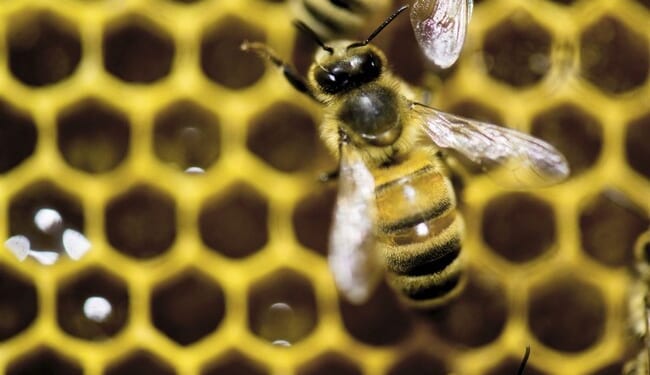
Say hello to your little friend, even if your friend happens to be a bee or a wasp. They might just understand what you’re saying, at least according to one group of scientists who recently signed the New York Declaration on Animal Consciousness. They have spent years studying what they refer to as animal cognition, a recognition that animals don’t act purely out of instinct, but actually have thoughts, make choices, and have the capacity for affection and other emotions. Many also retain memories that appear to influence their future choices, such as octopuses who avoid places where they were previously injured. Even bees have been observed engaging in what appears to be playful behavior not related to seeking food, reproduction, or maintenance of their hives. Some of us who aren’t scientists of any sort are no doubt wondering what took them so long to figure this out. (NBC News)
Bees play by rolling wooden balls — apparently for fun. The cleaner wrasse fish appears to recognize its own visage in an underwater mirror. Octopuses seem to react to anesthetic drugs and will avoid settings where they likely experienced past pain.
All three of these discoveries came in the last five years — indications that the more scientists test animals, the more they find that many species may have inner lives and be sentient. A surprising range of creatures have shown evidence of conscious thought or experience, including insects, fish and some crustaceans.
That has prompted a group of top researchers on animal cognition to publish a new pronouncement that they hope will transform how scientists and society view — and care — for animals.
The declaration is published on the website of New York University. The list of animals exhibiting signs of sentience and conscious thought is lengthy. It includes all vertebrates, along with crabs, lobsters, squid, and even insects. But what does that really mean? According to these researchers, they were detecting “an ability to have subjective experiences.” This could include the ability to map and navigate their environment, experiencing feelings such as joy or pain, and exhibiting a level of self-awareness.
For at least some (if not most) animals, all of this should have been obvious. Any dog or cat owner could have told them that our furry friends are capable of experiencing and expressing love and joy. They also obviously experience pain or even anger when they are abused. Horse lovers will tell you the same thing.
I’ll confess to being a bit surprised at the results coming from some of the insects, however. They don’t have much in the way of brains and I’d mostly assumed that they acted on instinct. Bees have long been suspected of possessing some sort of group “hive mentality,” but I had no idea that they engaged in anything resembling “play.”
Self-awareness in at least some animals has long been obvious. Elephants recognize themselves in mirrors and will even try to remove a piece of paper stuck to their head if they see it. Dolphins also look at themselves in mirrors, which probably shouldn’t be too surprising since they have a larger brain in proportion to their body mass than any other animal, including humans. Octopuses have figured out how to pull the cork out of a sealed glass jar to access a food item that they see inside.
My only concern with this report is the somewhat ominous way that the researchers mention “implications for U.S. law.” To be clear, I remain very much opposed to animal cruelty and support the enforcement of laws against such terrible behavior. But this declaration mentions the fact that the United States “does not classify animals as sentient on a federal level.” Once you start declaring every animal to be “sentient,” does that mean that they are all entitled to the same types of rights and protections as people? I ask the question because it’s not hard to imagine some progressives using this declaration as an excuse to declare all of the cattle to be “emancipated” and force everyone to be vegans. Of course, according to these scientists, you won’t even be able to eat the bugs, either.

